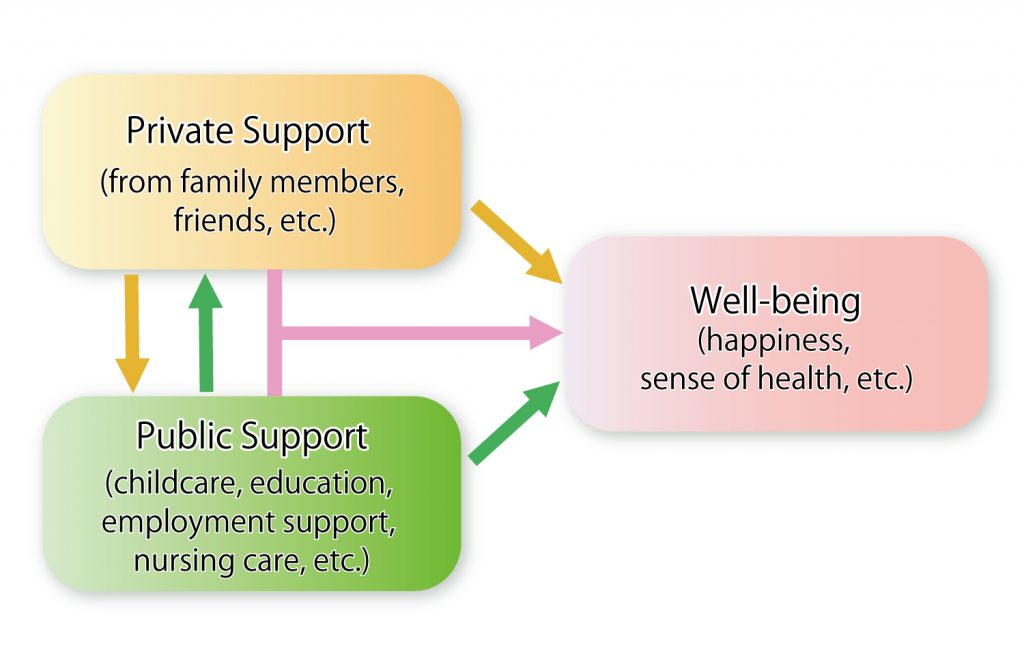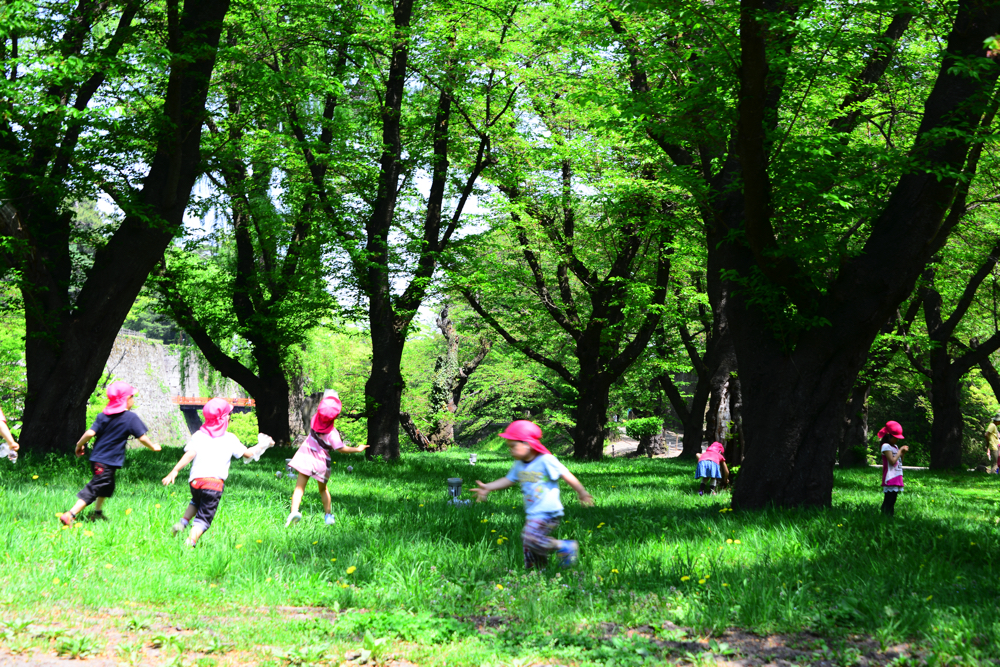Research subject
Empirical research on the determinants of well-being
Research outline

This research examines the social factors of “an abundant life,” that is, “a life with high well-being (happiness, sense of health, etc.)” in the modern Japanese society, toward “the elucidation of the scientific foundation to realize a super-aging society that allows people to enjoy an abundant life,” which this area of “Lifelong Sciences” aims for, with “social implementation” as the outcome.
Specifically, we focus on the relationship between private and public supports and well-being from a perspective covering each individual’s entire life. In other words, we examine what kinds of private support (support from close ones such as family members and friends) and public support (childcare, education, employment support, nursing care, etc.) received at each stage of life, from childhood to adolescence, late middle, and old age affect well-being in later life.
For this purpose, we conduct the first large-scale questionnaire survey in Japan that can grasp the private and public supports received at each stage of life in detail. Through this study, we aspire to verify the kinds of social relationship and support that lead to “a life with high well-being” and aim to obtain practical and policy implications. (B02 Principal investigator: Haruka Shibata)


Members
- Principal investigator:
- Haruka Shibata, Professor, Graduate School of Human and Environmental Studies, Kyoto University
- Collaborator:
- Haruyo Mitani, Associate Professor, Faculty of Sociology, Ryukoku University
- Sho Fujihara, Associate Professor, Institute of Social Science, The University of Tokyo
- Takanori Hirano, Associate Professor, Faculty of Sociology, Momoyama Gakuin University
